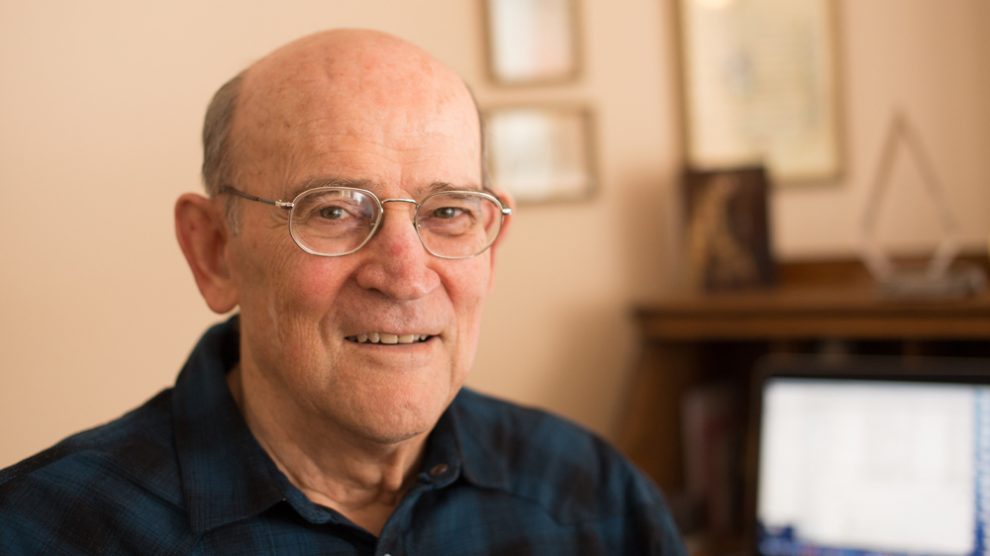Just recently I received an email that caught my attention. It was advertising an online leadership seminar entitled, “The Pound For Pound Principle.” I don’t have a clue what the seminar is about but the title intrigued me. Here are the thoughts that precipitated from what the seminar topic stimulated in my mind.
If the label on the package says one pound, you expect to receive just that. If you have scales at home you would anticipate a confirmation of what the package says. We call that a just balance. You pay for a pound — you expect to receive a pound.
In other words, does what I advertise describe what you get? In the middle of the last century, advertising shifted from the presentation of a product to the sale of an image. The life of the party, the influential voice, the successful athlete, the prominent business tycoon, and the list goes on. Coke became the cohesive glue for a fractured society. People were no longer buying a product, they were buying a dream, a fantasy or a world without boundaries. The manufacturers were not delivering pound for pound what their ads were communicating.
At some point I have mentioned one of my father’s sayings — “Never let it rest until your good is better and your better best.” So, what does that have to do with pound for pound? You see, “pound for pound” can become a statement for mediocracy. “If you want a pound that is just what I will give you.” When I worked with my Dad in the hardware store he would always remind me to give a bit more than they ask for. If they want a pound of nails, give them a few ounces over. If they want a ton of fertilizer, add a couple of extra bags. It was a practical way of saying, “Thank you for your business.” You ask for a pound — I’ll give you a bit more.
Let’s look at it through another lens. “You pay me for 8 hours — that is exactly what I will give you.” It’s a fair deal — pound for pound. When I was 12 I started working for a man who looked after the rural phone lines for the Airdre, Crossfield and Carstairs districts. My dad encouraged me to arrive early to prepare for the day’s work and not leave until the tools used were clean and in order for the next day. What do these two illustrations have in common? People benefit from your generosity but that is small in comparison to the value that is added to your character. My dad was helping me take my eyes off myself and my benefit to see how I could be an instrument of good for the benefit of others.
Pound for pound can also reflect a statement of entitlement. My life calling has involved over 2 million miles of air travel. I chose to stay with one airline. This resulted in numerous perks that came with my frequent flyer status. Many people have made the comment that I deserve the benefits. In other words, pound for pound, your frequency and loyalty entitles you to the perks. Do I appreciate the perks? YES! Do I deserve the perks? NO! “I deserve” is the brother of “you owe me.” Both of them have victimhood DNA.
Victimhood makes me the slave of circumstance and the prisoner of powerlessness. Victimhood puts my destiny in the hands of fate. I am powerless to change my course because of the painful events of the past and the unknown dangers of the future.
You cannot change the sexual abuse, gross injustice, bullying, negative words spoken to you and about you, and the list goes on. But you can change how you respond to the wrong and what you do with the choices that are before you.
Charles Finney was a slave in one of the southern states. His owner was a cruel tyrant and Charles was mercilessly beaten to the point of disfigurement. When freedom came he headed north and was compassionately cared for by a church family. He learned to read and eventually became a pastor. He was a prolific song writer, and an excellent teacher. Hundreds embraced the faith that he taught.
When asked about his painful past and the horrendous abuse, he replied, “I don’t understand it now, but I will understand it better by and by.” (A line from one of his songs.) Here is a man who rose above victimhood and gave the world a ton of good for the pound of abuse that he had received.
We can live by the rule, “A pound for a pound,” or we can choose to rise above our circumstance and turn that pound into two pounds of benefit. We can remain victims of our circumstance or we can refuse to allow the circumstance to circumscribe our life with limitation and look for the door that it opens to bring benefit to others.
If life has given you a pound of lemons take it and quench the thirst of fellow sojourners with lemonade.
If life has given you a garden of weeds, compost them and increase the productivity of your soil.
If life has given you a body of pain, use it to build a bond of identification with the pain of others.
Don’t let “a pound for a pound” rob you of a life that has the potential for tons of blessing for others.
Duane Harder























